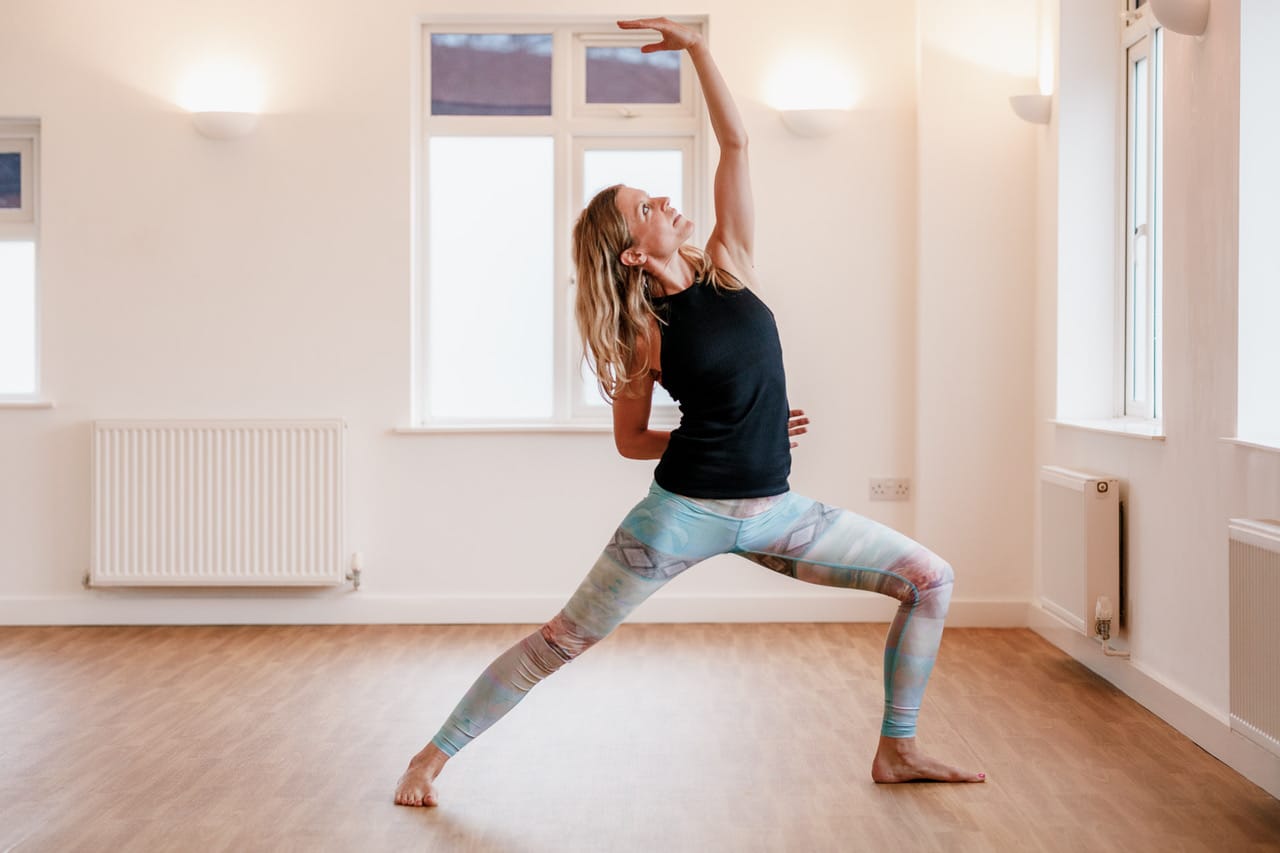483
Jivamukti yoga combines dynamic asanas with spiritual practice. However, this challenging style also involves risks. What you should look out for
What is Jivamukti yoga? Definition and origin
Jivamukti yoga is more than just physical training. It combines asanas, meditation and ethical principles. But what makes this style special, what should practitioners know and is it perhaps the right style of yoga for you?
- Origin and philosophy: Jivamukti yoga was developed by Sharon Gannon and David Life in New York in 1984. This style of yoga combines dynamic, sweat-inducing asanas with spirituality and ethical principles such as non-violence (ahimsa). Special yoga clothing is very useful here
- Combination of asanas and music: In contrast to traditional yoga styles such as hatha yoga, jivamutki yoga is accompanied by contemporary music such as hip-hop, electro and pop, as well as classical music. This creates an energetic atmosphere, generates emotions and motivates
- Integration of meditation and chanting: Another central feature of Jivamukti yoga is chanting, the singing of mantras. This is intended to promote concentration and calm the mind. Here it becomes clear that Jivamukti yoga is more than just a physical workout: it is about a spiritual lifestyle.
- Ethics and veganism: Another central aspect of Jivamukti Yoga is an ethical lifestyle, especially veganism. In Sanskrit, jiva stands for the individual, the soul that is inherent in every living being. It is therefore logical that peaceful coexistence is a high principle in Jivamukti Yoga. It is a way of life
- Spiritual practice: Jivamukti Yoga is a modern style of yoga that includes the study of scriptures such as the Yoga Sutras of Patanjali in addition to the exercises (asanas). These spiritual texts are intended to deepen the connection between body and mind.
Risks and criticism of Jivamukti Yoga
Although Jivamukti Yoga has many, even celebrity followers such as Madonna and Sting, there is also criticism. The style is demanding and can be dangerous if practiced incorrectly. What should you watch out for?
- High physical demands: The dynamic and fast sequences of asanas can be overwhelming, especially for beginners. If the asanas are not performed correctly or improperly, there is a risk of injury.
- Danger of excessive demands: The pressure to achieve spiritual and physical perfection can cause stress instead of inner serenity and calm. Yoga is characterized by listening attentively to your body and not going beyond your limits. This also applies to Jivamukti Yoga.
- Criticism of guru worship: Jivamukti yoga is criticized by some for its strong guru worship. This can lead to yoga teachers exercising their power, which can lead to unhealthy structures and dependency.
- Inappropriate adjustments: There have been reports of inappropriate physical adjustments to asanas by teachers in the past. Make sure you are practicing in a safe and respectful environment and maintain your boundaries. This of course applies to all styles of yoga
- Psychological stress: Intensive spiritual practice can be emotionally stressful. Mental stability should be a prerequisite. It may make sense to have this clarified professionally beforehand.
